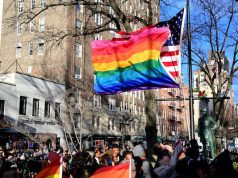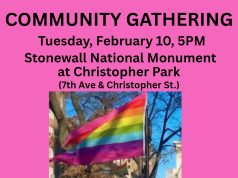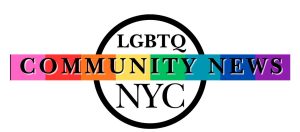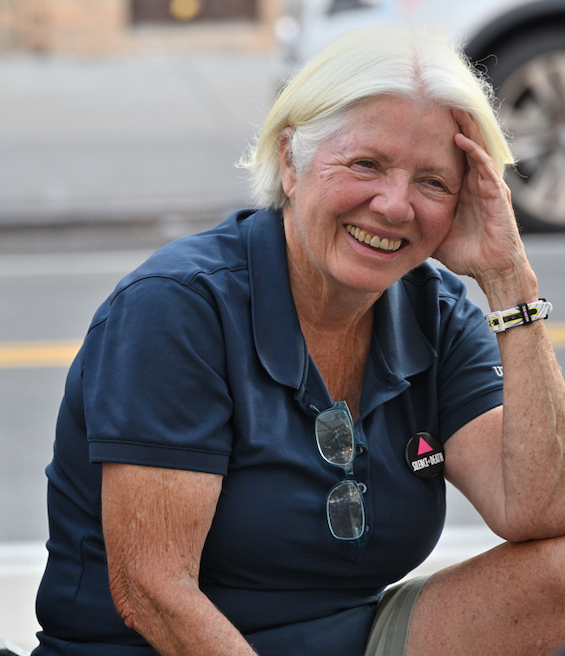
BY ANN NORTHROP | Yes, me. It never really occurred to me to worry about it. I don’t have the BRCA gene, or any family history. And anyway, it’s only 1 in 8 women who get it (and some men, too), right? Pretty good odds. I dutifully had mammograms for decades. A couple of cysts. Nothing else. So I went through menopause 25 years ago, and somewhere along the way, I stopped being tested. I get plenty of other tests, but no longer this one. I think I more or less forgot, or didn’t feel it was an issue.
And then, at the beginning of this year, a very good friend was suddenly diagnosed with ovarian cancer. A complete shock. She was perfectly healthy. But now she was being whisked into major surgery. And I thought to myself, “I think I’m healthy, but what do I know? I have no idea what could be going on with me.” My next thought was that I hadn’t seen an ob/gyn or had a mammogram for many years. Oops.
So I had a doctor friend hook me up with a new ob/gyn (too embarrassed to try to contact my old one who I hadn’t seen for, I don’t know, 15 or 20 years)? Saw the new one, had a gynecological exam, all good. And she set me up for a mammogram.
Boom. There it was. A significant mass in my left breast. Who knows how long it had been there? The technician immediately performed a sonogram, then told me she’d schedule me for a biopsy and a blood test and an appointment with a breast surgeon. “Wait, wait, wait. Are you telling me I have breast cancer?” “Yes.”
I didn’t know what to think. Should I be scared, or not? What was going to happen? I had the biopsy and made the appointment with the recommended surgeon. And then the best thing happened. I walked into her office and the first thing she said to me was, “Don’t worry. We can treat this. You’ll be fine.” Exhaaaaaaale.
She told me I had invasive lobular cancer—not the most common (about 15% of cases), slow-growing, and it could have been there a long time because it was pretty big (6cm), but it looked like it hadn’t hit the lymph nodes. It could be removed with a lumpectomy, she explained, and it could be done as an outpatient procedure. No overnight. This was sounding pretty good. But I was a little disappointed because ever since menopause, when my breasts and body started to expand, I’d been unhappy that my breasts were too big. A part of me had hoped the silver lining of my breast cancer might be reducing/losing them. But it was hard to complain about facing just a simple lumpectomy.

We scheduled the surgery for a couple of weeks later and I had one more test—an MRI. And that was another shocker. The MRI showed more detail, specifically a clouded area behind the tumor. Very possibly more cancer. We discussed doing another biopsy but that seemed unnecessary. Instead, we decided I really needed a full mastectomy. No messing around. Just take the whole breast and whatever was in there. Fine with me.
My next scheduled appointment with the surgeon was the day before the surgery, to discuss last minute details. But a couple of days before that, I got a call from her nurse saying, “We want to arrange for you to see the plastic surgeon.” Whoa! Hold on a minute. I don’t want reconstruction. Now that I am going to get rid of that breast, I don’t want to build a new big one. So I stopped that plan. And then I thought about my options. I didn’t want any kind of recreation of the big breast—prosthesis or otherwise. But I also didn’t want to be flat on one side and still have my DDD other breast. Not an appealing look. So I decided the answer was a double, or bilateral, mastectomy. Take both of them.
It was ironic. I had vaguely fantasized about losing both breasts. Not because I don’t like them. I’m a lesbian. I definitely like breasts—on me or others. But I did feel burdened by the size of mine. So even though there was no indication of disease in the right breast, and as I said no genetic indicators, I found I was really liking the idea of losing them both. I also knew the surgeon might not be crazy about that idea.
I went to my appointment with her the day before the surgery and we talked about it. I told her that I knew I didn’t have to remove the right one. She told me she could do a reduction on that breast and rebuild the diseased one smaller. I just felt that was asking for trouble. I prefer simplicity. And what I really wanted was symmetry. She probed my thought process, and ended up saying she thought I was making a rational decision, for me, and so yes, she’d do it.
And that’s what happened in the first week of April. Both breasts removed. The tumor, as it turned out, had not reached the lymph nodes, but they took a few of those to double check for any random cancer cells floating around. They also found it had begun to penetrate the chest muscle, so they took a little extra piece of that to also check there for free-floating cancer cells. None found in either place. (Could I get that chest muscle back, please?) And I did spend a night in the hospital (with a much too chatty roommate), but the drugs were great.
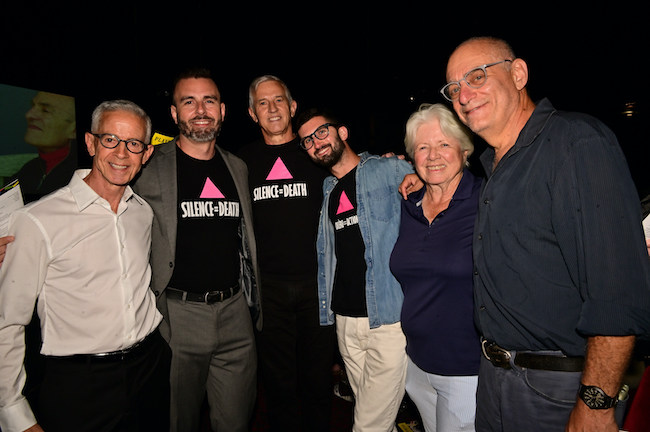
So the results were very positive. The margins of the surgery were clear. No extra cells found. Excellent prognosis. No chemo because there evidently isn’t one appropriate to my situation. But radiation recommended just to try to make sure to zap any of those random cells if they were there. Okay, sounds good. I had 25 sessions of radiation—basically 5 days a week for 5 weeks. Just a few minutes, in and out. Not painful, not glowing in the dark.
The recovery process has been a little tedious, but nothing horrible. For the first couple of weeks, I had a couple of drains in my side that I had to empty a couple of times a day and record the amount of liquid. They were uncomfortable but tolerable. The day they came out was a great feeling of relief. The incision has healed, but is still a little lumpy and bumpy. I’m told that it will eventually settle down and smooth itself out. I do see progress with that so I’m trying to trust the process.
Now I’m on anastrozole, a pill to suppress estrogen (which feeds tumors). I’ll add a second pill soon and take those for five years before I’m declared officially in remission. They say the pills will put me in something resembling menopause. Really? Yes, back to mild hot flashes.
So that’s the medical story, but I may be burying the lead. What really got me through this was friends who’ve been through this, too—old friends and new, coming out of the woodwork as word spread, friends each with their own stories, similar or different, but all completely open and generous about sharing their experiences. And some, men and women, who hadn’t had cancer but just wanted to help. And food. One set up a “meal train,” an app where people can sign up to send or bring a meal. Genius.
I never lacked for company or nourishment, which was great because those first two weeks with the drains coming out of my sides was not a time I wanted to leave the house. And then I’d had enough food and people to last for a while so I thanked them and moved on. Actually, back to the golf course. Turns out you can get active pretty fast and I have. Back to golf, back to the gym, rebuilding strength gradually. All good.
I wouldn’t recommend cancer, but I’ve learned a lot, and I think I’ve had excellent care, for which I am deeply, deeply, deeply grateful. And I hope one thing I’ve learned is to pay closer attention to my health on an ongoing basis.
That’s my advice to all of you, too. I don’t think lecturing anyone does any good, but what I will say, to those of you who say, “I don’t want to know,” or whatever excuse you use, is you’re not doing yourself any favors by not staying on top of whatever testing is right for you. I’m grateful that I finally woke up and got myself checked. If I’d died because I didn’t check in time, I’d have been really mad at myself! Haha.
The fact is that I had a close call. And I’m not out of the woods. One friend who had a different breast cancer some years ago has just had a recurrence. And she’s not the only one I know who’s experienced that. They’re good right now, because they did keep checking. I’ll have regular checkups, too. Turns out just because you have your breasts removed doesn’t mean you can’t still get breast cancer. You can, in your chest. So I’ll keep checking, and having colonoscopies, and dermatological tests for skin cancers, etc., etc. And then there’s the dentist, and the eye doctor.
It’s a full life, but it IS life, and I do love that.
ABOUT ANN NORTHROP | Since 1996, veteran journalist and activist Northrop has co-hosted the weekly national cable show “Gay USA” (gayusatv.org; also serving as its co-executive producer). Her journalism career began at The National Journal in Washington, D.C., and includes producing for ABC and CBS News. In early 1988, Northrop joined ACT UP/New York, participating in hundreds of demonstrations and getting arrested many times for civil disobedience. She served for four years as a board member of the Gay Games, and helped create the Institute for Gay and Lesbian Strategic Studies (a gay think tank now known as the Williams Institute).
Note: October is Breast Cancer Awareness Month. To learn about breast health, early detection, and support, visit nationalbreastcancer.org.
—END—
LGBTQCommunityNews.nyc is an independent, free source of queer-centric news, arts, info, and opinion content. Our website, podcast, and quarterly newspaper are funded by advertising revenue and reader donations. To support this project, click here for the GoFundMe campaign. Questions? Comments? Click here to contact us. To join the subscriber list of our free ENewsletter, click here.



